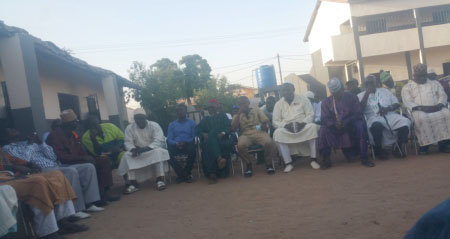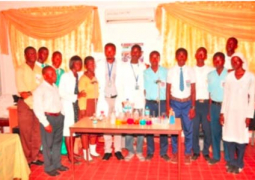
The
Gambia Press Union through the Women Journalists Association of The Gambia
(WOJAG) and other stakeholders on Friday validated the sexual harassment policy
for the media. The policy seeks to tackle the problems of sexual harassment in
the newsrooms. In order words, the policy would serve as a framework for the
presentation, protection and redress when it comes to sexual harassment issues
in the media.
It
could be recalled that The Gambia Press Union, through the Women Journalists
Association of The Gambia, is implementing a project, entitled ‘Breaking the
Gender Barriers’ in the Media. The
12-month project is funded by the United Nations Scientific,
Educational
and Cultural Organisation (UNESCO).
At
the validation form held at the TANGO, Fatou Touray, a member of WOJAG on
behalf of President of WOJAG- Sarjo Camara, acknowledged that the day marked an
important milestone in the calendar of Women Journalists Association of The
Gambia, as the policy seeks to put an end to sexual harassment in the newsroom.
The policy, she said, also seeks to promote
gender quality in the media, adding that with the policy in place people would
now be able to report issues relating to sexual harassment in the media.
The
bill, she said, is about addressing the unacceptable act in the media by
breaking the culture of silence through reporting the perpetrators.
She
expressed appreciation to the GPU for the support, adding that in the past,
series of fora were organised for reporters, editors and publishers.
Mustapha
K. Darboe, deputising for the president of GPU, acknowledged that for far too
long GPU is concerned in the development of Gambia media.
The
policy, he said, would serve as platform to end sexual harassment in the media
and went on to thank the consultants of their input and great work in drafting
the policy.
Draboe
indicated that the policy if implemented would greatly transform the country’s
media landscape.
Also
speaking, Maimuna Sidibeh, principal programme officer and coordinator at
UNESCO lamented that the increasing number of sexual harassment of female
journalists is a cause for concern.
“We
are aware that a quite number of women newspaper journalists are sexually
harassed and these harassments ranged from degrading comments to physical
sexual assault. There have been stories that there are demands “for sex from
young employees most especially those coming new into the profession, before
they can be given assignments or even have their stories published”.
The
event also saw presentations by Njundu Drammeh, an activist and co-consultants
and Matt Mbye, a senior lecturer at the MDI.



